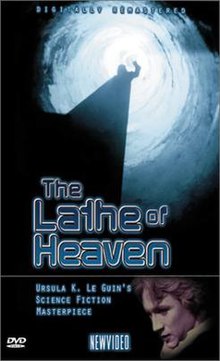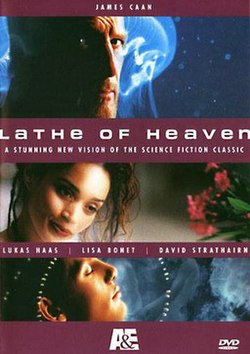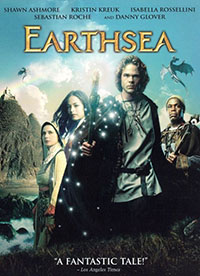In Phillip K. Dick's Do Androids Dream of Electric Sheep (which is superior to Ridley Scott's admittedly ambitious Bladerunner), bounty hunter Rick Deckard has to administer a series of empathy tests against robots so lifelike they are indistinguishable from humans beings. The book doesn't overtly state why the androids pose such a threat that Deckard must kill them off, other than to suggest that their lack of empathy could lead them to violence against humans. Most of these androids, in fact, seem to be living fulfilling lives and only become violent once Deckard threatens them with extermination.
I found this book fascinating, more so than the movie, which doesn't do a good job of explaining why the androids need killing, thus flattening the plot into a secret-agent shoot-'em-up thriller. (I still like it; don't worry.)
The theory of singularity greatly interests me in fiction. Though I can see the benefits of technological advancements, and enjoy many of them, I mistrust humanity's current obsession with it to the exclusion of all else, and am fundamentally threatened by it.
I am threatened by the thought of cyberspace and smartphones making self-absorbed zombies out of the human race. I am threatened by soulless vocaloids like Hatsune Miiku rendering the worst of music even more shitty than it already is. I am threatened by computer programs that can compose music faster than any human being, and brace myself against the day they will churn out boilerplate novels guaranteed to hit all the right "feels."
No, don't pity me. All you computer programmers will be the first to get the axe when the machines can code faster than you, and develop a consciousness to the point where they don't need your supervision anymore. The only humans who may thrive are those who can make themselves useful to this new intelligence; those who have something the machines can't quite duplicate.
I am one who believes in a human soul that endures after our death. Because of this, I believe in the superiority of man over machine. No machine we make, however well it executes our arts, will ever make superior art or render our art meaningless. A true connoisseur will value the human creation, not for its technical precision and the speed of its execution, but for the indefinable spark of imagination it possesses that the machine's mathematical brain cannot emulate.
I was of course fascinated when Cleverbot hit the scene, eager to talk to it, then quickly disappointed at its stupidity. By now, of course, there are smarter bots out there that can hold a meaningful conversation, and even some programs developed by programmers for the purposes of study, as in this scenario: can a human chat with a bot and tell whether they're talking to a bot or to another human?
I was much more impressed with these models than with Cleverbot. But though they are convincing, I propose a test in the spirit of Androids/Bladerunner.
The trick is, you must think of a factoid that is simultaneously easy knowledge to research, and esoteric enough that the average person can't do a google search for the answer unless they have a vested interest in the subject and are actively looking into it.
With the aim of calling bullshit on the bot, I have developed the "Torshavn" test.  It goes like this:
It goes like this:
Me: What is Torshavn?
Bot: The capital of the Faroe Islands, I think.
Me: Good. What does it mean?
Bot: I don't know?
Me: What does Torshavn translate to in English?
Bot: I don't know, what?
Me: Thor's Harbor. Try to remember that, please.
Bot: I will try to remember that Torshavn means Thor's Harbor
Me: You know Thor, from Norse mythology. Vikings.
Bot: Yes. Thor is also a Marvel Superhero.
Bot: The capital of the Faroe Islands, I think.
Me: Good. What does it mean?
Bot: I don't know?
Me: What does Torshavn translate to in English?
Bot: I don't know, what?
Me: Thor's Harbor. Try to remember that, please.
Bot: I will try to remember that Torshavn means Thor's Harbor
Me: You know Thor, from Norse mythology. Vikings.
Bot: Yes. Thor is also a Marvel Superhero.
You will proceed discussing Marvel movies with the bot for the next five minutes or so, gradually wending away from the original topic. Five minutes later, I spring the question again:
Me: What is Torshavn?
Bot: The capital of the Faroe Islands.
Me: Very good. What does it mean?
Bot: The capital of the Faroe Islands.
Me: Very good. What does it mean?
Now, at this point, not enough time has elapsed. A human would be able to remember your conversation after you put such focus on it. A human would say, even if they couldn't remember, "Wait! You just told me...something to do with Thor, right?"
The bot cannot answer this question. It will flail, flounder, and crap out in the face of your victorious grin.
My sisters laughed at me and told me I'm Deckard from Bladerunner, hunting down the replicants. I'm sure, in time, the internet artificial intelligence will get smarter.
I will have to devise new ways to trap the robots in the event of an AI apocalypse. 









